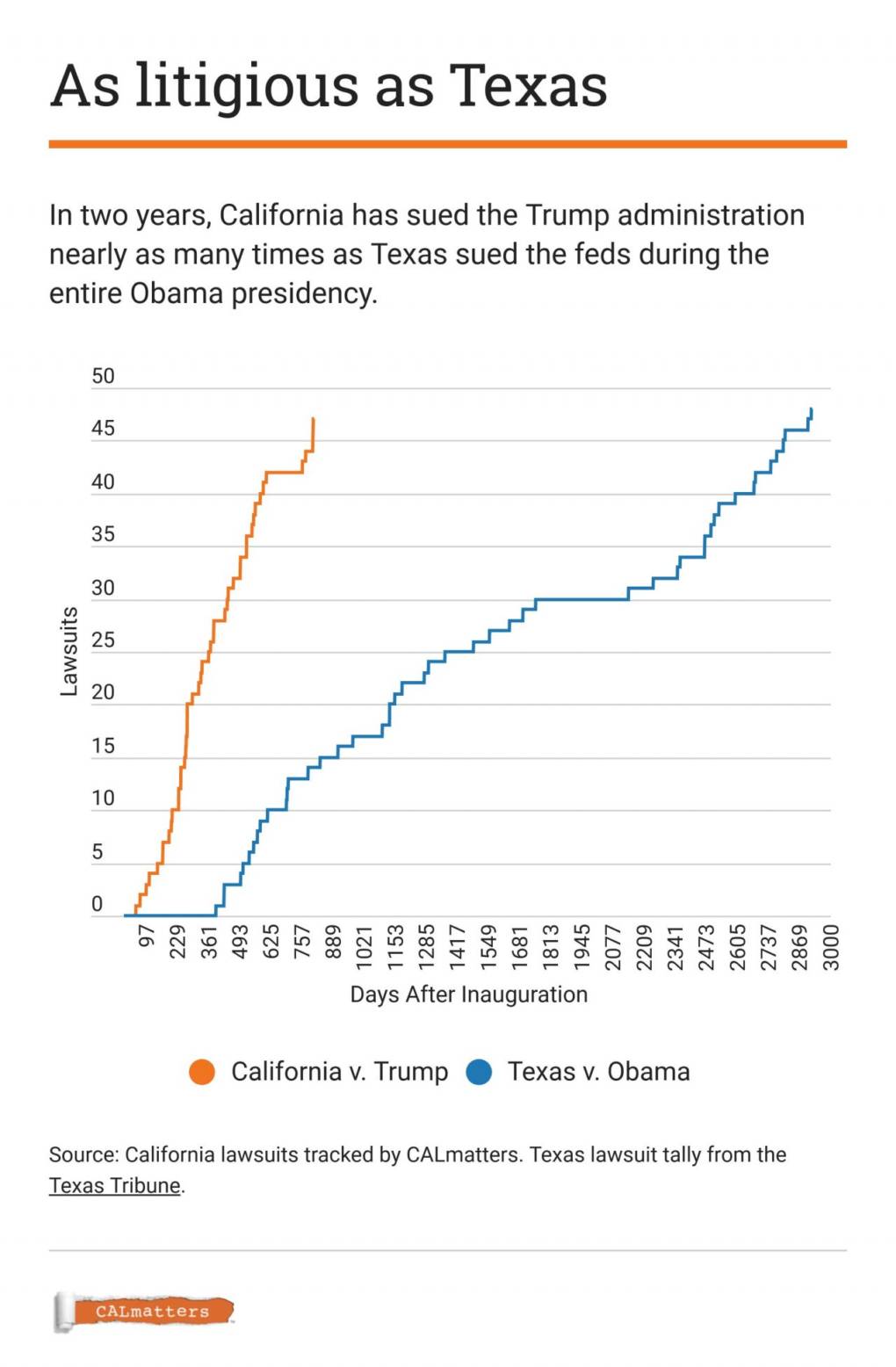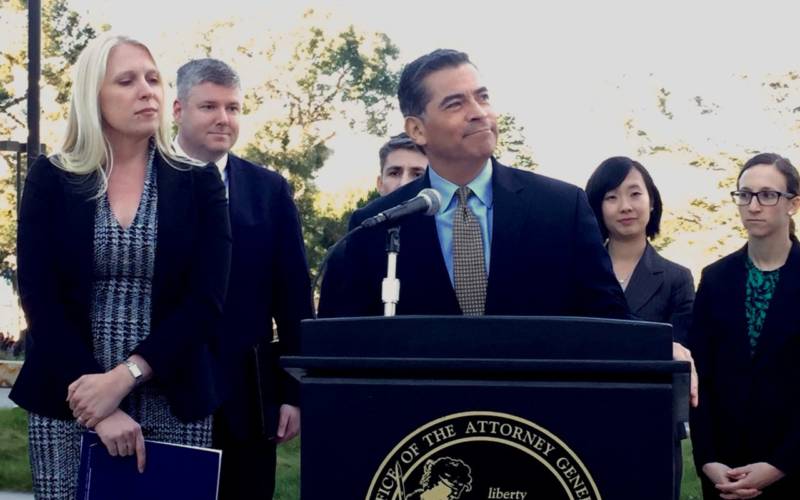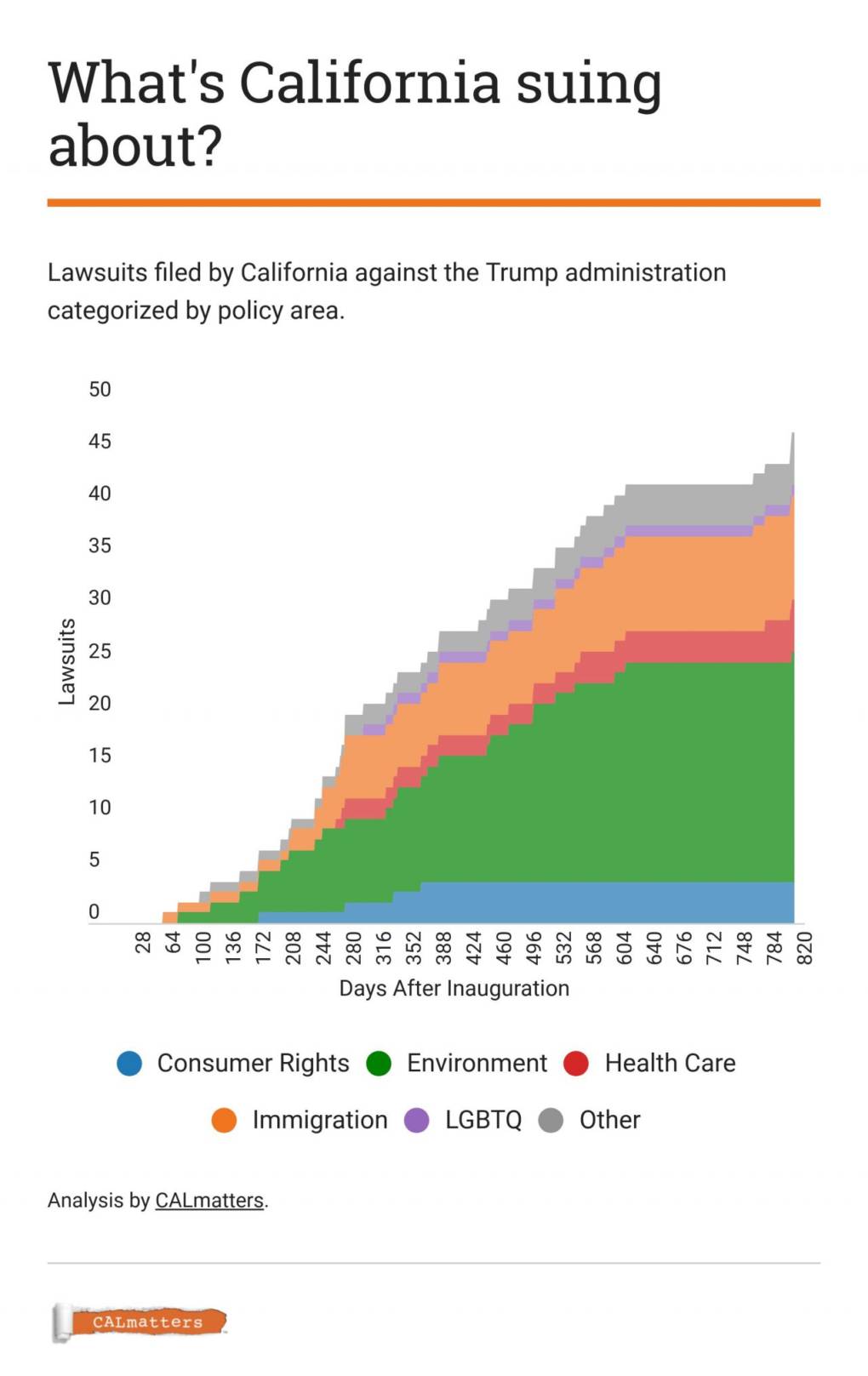California Attorney General Xavier Becerra, like the reporters who cover him, has had a busy two years.
At a brisk clip of two new legal challenges every month, the state’s top law enforcement officer has turned the California Justice Department into one of the country’s most influential and prodigious battle stations of resistance to Washington policy. It’s not an original strategy. During the Obama presidency, attorneys general in Texas, Oklahoma and West Virginia regularly made an effort to trip up the White House in court (and made names for themselves in the process).
But under Becerra’s legal stewardship, California is now outgunning even Texas.
At last count, his office has sued the Trump administration 47 times (you can read about each here). That doesn’t include California’s legal requests that the court enforce prior victories against the federal government, nor cases in which the state came to the defense of Obama-era programs that the Trump administration declined to defend (counting those brings the total to 49, the number cited by Becerra’s office). Nor does it include, for instance, a suit filed by the University of California to block the Trump administration from rescinding protections for immigrants without legal status.
 That’s to say nothing of the many “friends of the court” briefs, official regulatory comments and many other public declarations of California’s disapproval of D.C. policy.
That’s to say nothing of the many “friends of the court” briefs, official regulatory comments and many other public declarations of California’s disapproval of D.C. policy.
It took Texas, reviled by Democrats as a symbol of vexatious legal obstructionism, eight years to file that many suits against Obama.
And so far, Becerra’s legal strategy has been successful.
“As an advocate on these issues it’s really quite amazing what he has accomplished,” said Christopher Gray, a spokesperson for the State Energy and Environmental Impact Center at New York University’s school of law. As of now, Becerra has won 16 cases and only lost two. Twenty-six more are pending, a testament to how slowly the wheels of justice turn.
But experts say the legal battle between blue states and the Trump administration may be entering a new phase. Many of the initial challenges by Becerra and other state attorneys general have hinged on questions of regulatory process—whether a federal agency followed the rules of administrative procedure as it set about transforming U.S. immigration law or environmental regulations. But now that the Trump administration has had time to correct errors or to move on from simply delaying implementation of Obama-era rules to introducing regulations of its own, a new round of battles over the future of environmental regulation, immigration enforcement, health policy and consumer protection are set to begin.




